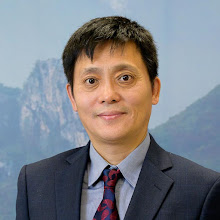Tiejun Tang
“Can Chinese Medicine treat cancer?” Many patients and my students ask me this question in the clinic and classroom. This is a good question, but it is a big topic. I can spend the whole morning to talk on this topic to my students. But in my busy clinical work, I can only give the patients a brief explanation about this question. I write something here about this hot topic. If anyone is interested in this question I can tell them to check my blog and find a more detailed answer.
Cancer was nearly an incurable disease thirty years ago when I was a medical student. Most cancer had a high mortality rate. Due to the development of modern medicine, more and more new techniques have been used to treat cancer. The mortality rate has been greatly decreased. Modern medicine can use surgical operation to remove the tumour. They can poison the cancer cells by chemotherapy, kill the cancer cells by radiotheraphy, burn the cancer by thermotherapy and freeze cancer by cryotherapy. However, modern medicine still has some troubles in the treatment of cancer. Many people still die of cancer every year. Why?
Some patients are too late or too weak for operation after been diagnosed with cancer. Chemotherapy and radiotheraphy not only kill the cancer cell but also kill some normal cells like white blood cells (WBC) and red blood cells (RBC). If the WBC are too low, the chemo has to be stopped because of the high risk of fatal infection. Unfinished chemo will allow the cancer cell to survive and develop. This paradoxical condition is very common in the treatment of cancer.
Chinese medicine can treat cancer by at least two ways. One called Fuzheng (invigorate health) the other call Quxie (expel evil). Fuzheng includes nourishing qi and blood and/or nourishing yin and yang. These herbs can raise WBC and RBC count and increase the immune function of the patient. It can be used to treat side effects of chemo and radio. The chemo can be carried out under the protection of Fuzheng herbs. Quxie includes expelling phlegm, removing the blood stasis, releasing the qi stagnation and detoxification. These herbs have been proved to inhibit cancer cell in vitro or in vivo.
For example, a research report showed During the cancer treatment, when patients were
given Danggui extract and cyclophosphamide (CY), it can prevent the
cytotoxicity of CY to hematopoietic and gastrointestinal tissues(1). A study from Taiwan reported that Huangqi Liuyi Tang (HQLYT), which consisted of Huangqi, Gancao and Dazao can enhance the cytotoxic effect of natural killer cells on YAC-1 cancer cells. Significantly delayed the decrease of WBC level caused by chemotherapy drugs, and affected the faster recovery of WBC level to normal state. Enhanced immune function in both in vitro and in vivo studies (2).
In classical texts of Chinese medicine, cancer was recorded as Jiju (mass). Ancient doctors treat Jiju by balancing Fuzheng and Quxie. Deficiency syndrome should use more Fuzheng; excess syndrome should use more Quxie. Sometimes use Fuzheng first, followed by Quxie; sometimes the other way round.
Most of the modern medicine therapies for cancer belong to Quxie, they make the patients weak and tired. In many cases, Chemo has to be stopped because of its side effects. In China doctors always combine traditional Chinese and western medicine together. Many clinical reports show integrated therapy is better than any single therapy.
We shouldn’t only use Chinese medicine to treat cancer, but Chinese medicine can definitely play a very important role in the cancer treatment.
In classical texts of Chinese medicine, cancer was recorded as Jiju (mass). Ancient doctors treat Jiju by balancing Fuzheng and Quxie. Deficiency syndrome should use more Fuzheng; excess syndrome should use more Quxie. Sometimes use Fuzheng first, followed by Quxie; sometimes the other way round.
Most of the modern medicine therapies for cancer belong to Quxie, they make the patients weak and tired. In many cases, Chemo has to be stopped because of its side effects. In China doctors always combine traditional Chinese and western medicine together. Many clinical reports show integrated therapy is better than any single therapy.
We shouldn’t only use Chinese medicine to treat cancer, but Chinese medicine can definitely play a very important role in the cancer treatment.
Reference:
- Marco K C Hui. Polysaccharides from the root of Angelica sinensis protect bone marrow and gastrointestinal tissues against the cytotoxicity of cyclophosphamide in mice. Int J Med Sci. 2006;3(1):1-6
- Immuno-enhancement effects of Huang Qi Liu Yi Tang in a murine model of cyclophosphamide-induced leucopenia. J Ethnopharmacol. . 2007;109 (2):229-35..

